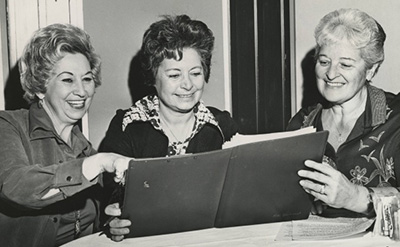Herb Tobman

Herb Tobman (1924-2006) was a real estate developer, businessman, and casino executive in Las Vegas, Nevada. Born on December 20, 1924 in the Bronx, New York, Tobman served in the Navy during World War II. Shortly after moving to Las Vegas in 1952, Tobman opened City Furniture Exchange. The store burned down in 1955 but was rebuilt and operated for two decades. 1955 was also the year that the Moulin Rouge, the first integrated casino in Las Vegas, opened. Tobman became general manager of the casino, which closed only seven months after opening. In 1965 Tobman purchased Western Cab Company, which he owned for many years. He worked as general manager of the Aladdin beginning in 1971 before he became president of the Stardust hotel in 1974. In 1979, he formed Trans-Sterling Inc. with partner Allan D. Sachs and took over the management of the downtown Fremont and Sundance (now The D) hotels in addition to the Stardust. Sachs and Tobman sold their interests in the hotels in 1984, amid allegations of skimming; they lost their gaming license and were fined a record $3.5 million by the Nevada Gaming Commission. Tobman served on the Las Vegas Convention and Visitors Authority board during the 1980s and unsuccessfully ran for governor in 1986. He was also active in many civic organizations and was chairman of the Clark County Heart Fund, co-founder of WestCare (a drug rehabilitation center), and the commander of the local Jewish War Veterans chapter. Tobman died in March 2006.
Source:
"Entrepreneur, civic leader Tobman dies at 81." Las Vegas Sun. March 16, 2006. http://lasvegassun.com/news/2006/mar/16/entrepreneur-civic-leader-tobman-dies-at-81/
View Related Items View Oral History Listen to Audio Clip





